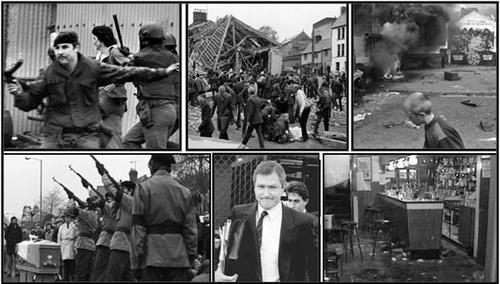EAMONN BAKER, training director at Towards Understanding and Healing, writes for The Legacy.
Derry-Londonderry based Towards Understanding and Healing (TUH) has been in existence for sixteen years.
TUH was originally established through visionary and risk-taking collaborative work spear-headed by Maureen Hetherington, director of the Junction Community Relations Resource Centre and Eamonn Deane director of the Holywell Trust.
The project was developed as a vehicle for ethically “dealing with the past/remembering the future” through “safe and risk-taking” positive encounter storytelling and dialogue processes programmed in a variety of community settings across Northern Ireland and in the border counties.
While TUH remains aware of the risks of participants being re-traumatised by storytelling and dialogue processes, the goal for all participants always is increased understanding and healing.
Our evaluations often indicate that our work does promote increased understanding and healing particularly where our programme is cross-community and particularly when participants have had the opportunity, maybe for the first time, to hear the “other’s” story.
Ideally TUH works on a cross-community, cross-cultural basis, providing “narrative hospitality” to the disparate, complex narratives of the conflict in and about Northern Ireland in order that us citizens may better understand and better relate to the often tragically mythologised “other”.
It is of course not always possible to achieve cross-community participation in our programmes.
Timely, imaginatively thought-out, single-identity storytelling and dialogue events will take precedence over any unethical rush to drag together people from diverse community backgrounds into TUH sessions.
That said, during the sixteen years of its existence, TUH has worked with a considerably wide range of victim-survivors and with ex-combatants of all stripes and none.
Over those years too, the organisation has developed its own momentum while remaining intimately involved with the ongoing healing and transformative work of the Junction and Holywell Trust.
TUH is an active member of the Diverse City Community Partnership and is delighted to be located in the new premises of the Partnership in Bishop Street.
With its present funding from SEUPB/Peace 3, Towards Understanding and Healing has two core aims.
TUH aims to develop and sustain supportive mentoring processes for storytelling and dialogue facilitators across NI and the border counties by offering the TUH Positive Encounter Storytelling and Dialogue NIOCN accredited programme at levels one, two and three.
In support of these programmes, TUH has developed its own unique and comprehensive training materials including a DVD on facilitating storytelling and dialogue, a DVD showing storytelling work with members of the deaf community, a training manual authored by Dr Liam O Hagan, a publication, ‘Stories in Conflict’ also edited by Liam O’Hagan.
Simultaneously and equally important, TUH is outreaching to include participants who, as yet, remain outside the parameters of many peace and reconciliation programmes -disaffected voices, victim-survivors, unaffiliated ex-prisoners, at risk young people and we seek to actively explore the intergenerational impacts of the conflict.
Looking ahead, we plan to continue making use of different community media approaches, for example film.
We are currently working in partnership with Blue Eagle Productions, Derry City Council and CRC to develop a DVD based on Jonathan Burgess’ ‘Exile’ production.
‘Exile’ dramatises the current experience of Protestant people who quit the west bank of Derry/Londonderry in the early 1970s.
We also have been working on two publications. On the 19th February 2014, in partnership with CADOLEMO, we launched the first of these ‘The Forgotten People of Ulster’ – stories of the Orange community in the border counties of Cavan, Donegal, Leitrim and Monaghan.
We are currently bringing to completion a book of interviews with people traumatised by the conflict here. This publication will also explore what has helped support emotional resilience/post–traumatic growth in the lives of these interviewees.
Further, we are in the early stages of exploring another community drama process where stories of former security force personnel will be authentically re-told and brought to an audience who might never have had the opportunity to hear such accounts.
In the continuing absence here in Northern Ireland of an inclusive truth recovery process or truth commission, TUH is seeking to devise some kind of a meaningful and more formal truth-telling process, some highly thought-out ritual, where people can share their personal lived experience, share their own ‘narrative truth’ receiving both significant acknowledgement and validation whilst perhaps also exploring routes towards justice and healing.
